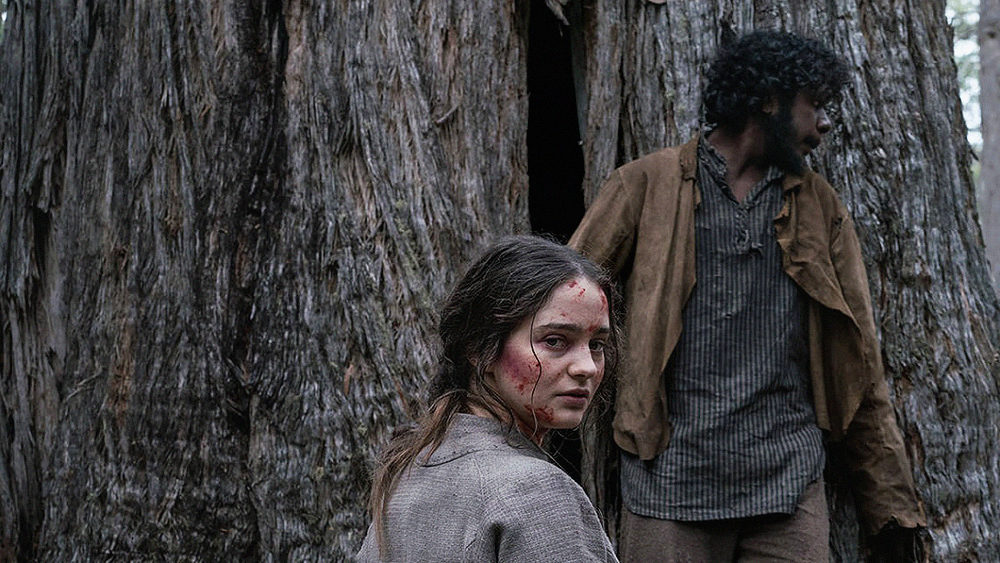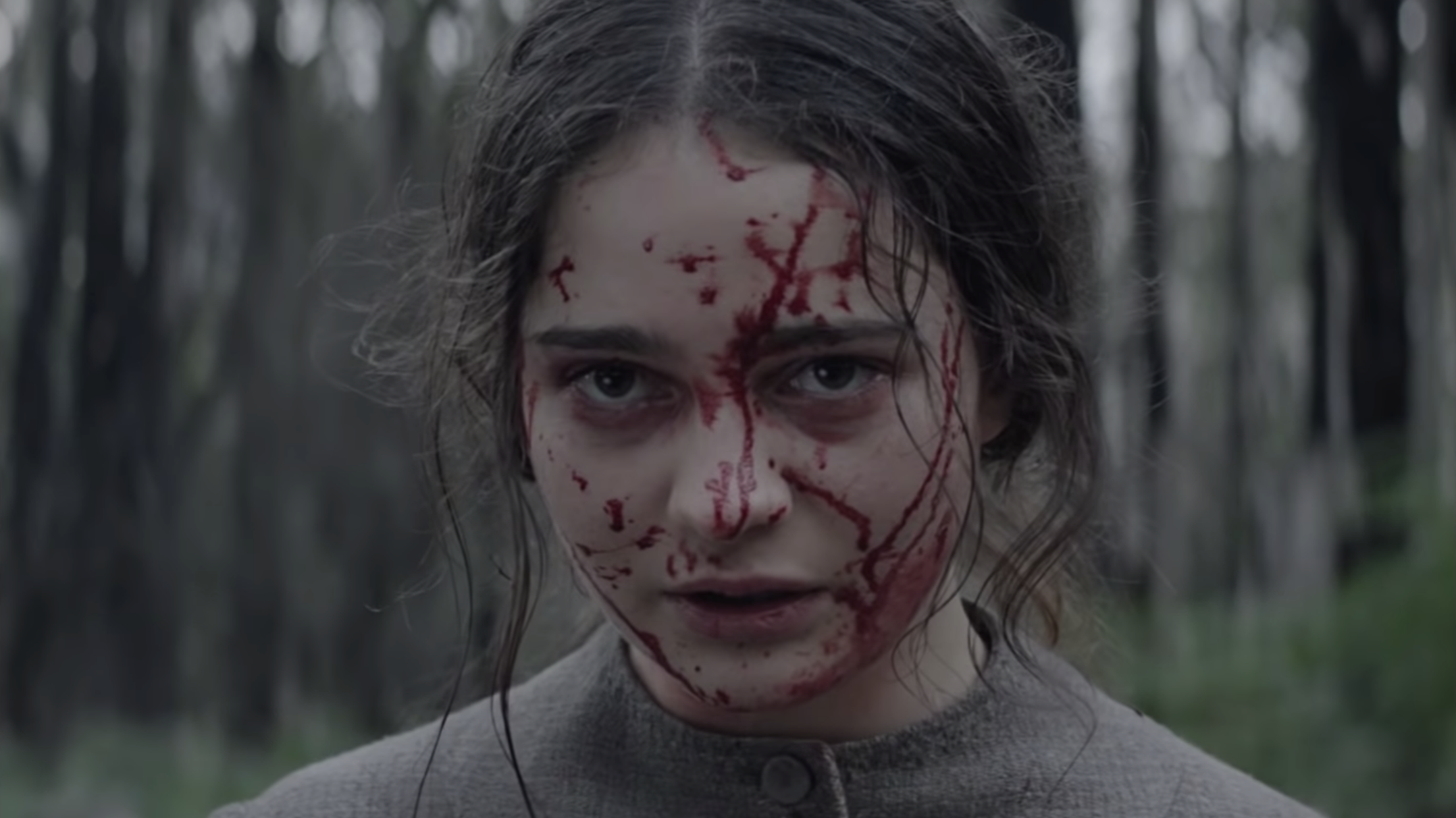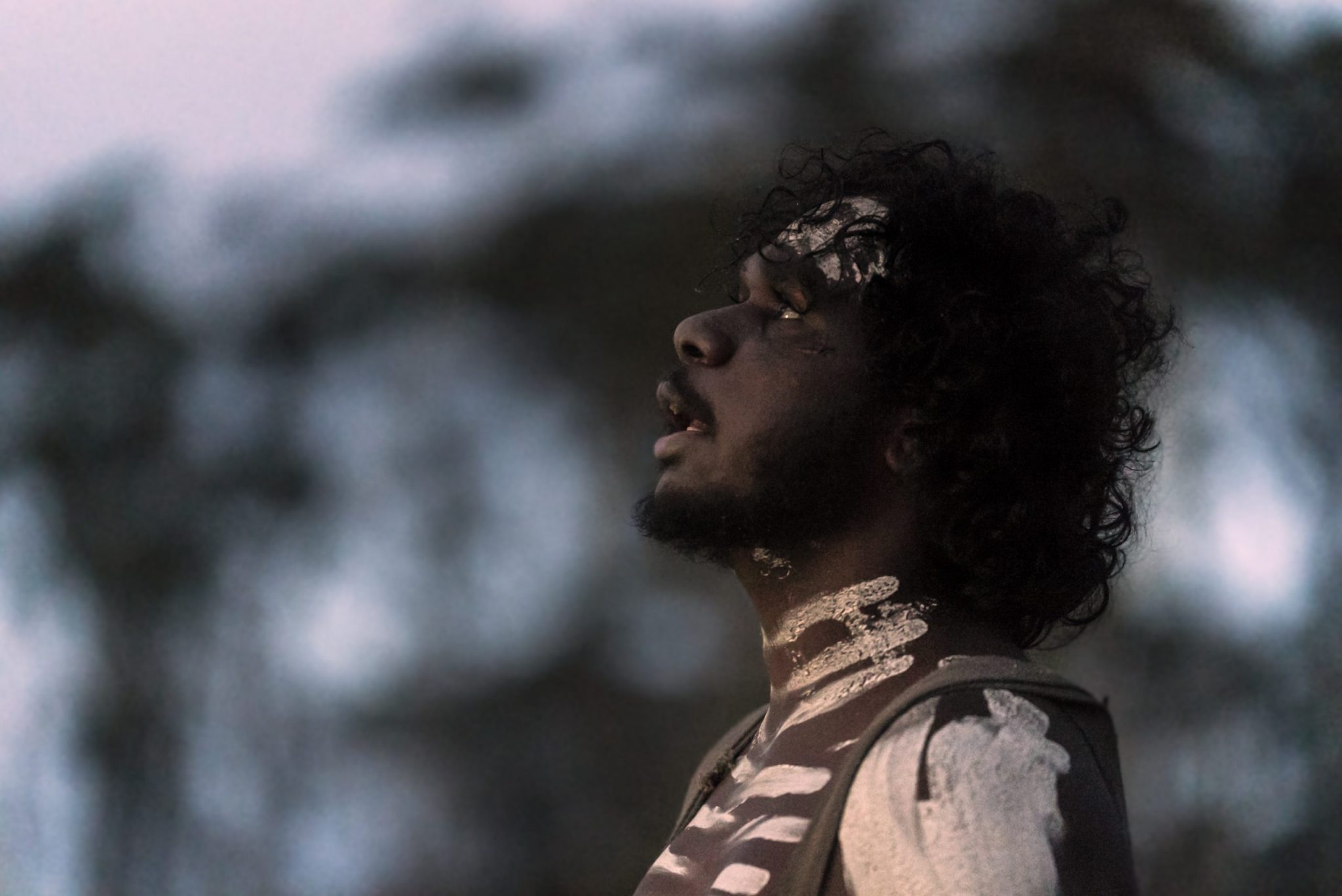Some films give you a sense before you’re even halfway through that you’re watching something special (Primer) or something that sucks (most comedies). I felt like Joker was going to be the best film of 2019 before the title had even appeared.

But sometimes your opinion of a movie can change within the running time. I was struck with this thought during The Nightingale because I can’t remember a movie I was so excited about at the beginning but which was so sorely testing my patience by the time it was over.
Coming so close behind my watching The True History of the Kelly Gang I might even have got one or two of the details confused, particularly because this is Jennifer Kent’s next film after The Babadook, which starred Essie Davis, who was also Ned’s mother in Justin Kurzel’s Tarantino-esque reimagining of the Kelly Gang legend.
This is likewise set in the Australian colonial period where sun bleached beaches and lush rainforest are eons away, people living hardscrabble in stark – at times ugly – circumstances of deprivation in remote, unforgiving locations.
Like Kerzel’s film, it’s also a story of the English and their contempt for the Irish convicts and servant classes. We see such a social arrangement made flesh in pretty young wife and house maiden Claire (Aisling Franciosi). Along with her husband she was a convict who owes some sort of financial debt to the soldier Hawkins (Sam Claflin) for sponsoring her release from prison in rural Tasmania. She’s apparently served her time and needs a letter of release from him for her and her husband Aidan (Michael Sheasby) to go their own way, one Hawkins is hardly interested in providing.
The name of the film refers to her beautiful singing voice, and after her performance entertaining Hawkins and his ragtag company of boisterous troops, we can see the lust in all of their eyes and understand how much trouble Claire, Aidan and their baby are in. When she goes to Hawkins to again petition him for the letter, he instead makes her sing for him again and then rapes her, leaving her to dawdle home in a daze and leaving Aidan sure something terrible has happened to her.
When it becomes obvious they’re not getting away legally, Aidan and Claire make to simply flee, but Hawkins and two of his command catch them at it, all of them this time raping Claire, shooting Aidan dead and murdering her crying baby by hitting it against a wall.

It’s not nice and such brutal cruelty is hardly entertaining, but it’s a very effective dramatic set-up for the story. After the visiting senior officer has seen what undisciplined rabble Hawkins’ unit is, he informs Hawkins that he’ll be advising his own superiors against the promotion the young captain has been hoping for.
Enraged, Hawkins tells the two lieutenants who were complicit in the gang rape and murders that they’re going overland to Launceston so Hawkins can confront the officer who’ll be making the decision about the promotion himself.
Claire, dead-eyed and with nothing left in her heart but black rage, sets about following Hawkins to kill him for what he’s taken from her. She enlists a local aboriginal tracker, Billy (Baykali Ganambarr), as dismissive and superior with him as the English are with her. Mindful that he’d likely never help her kill an English army officer, she instead tells him she’s looking for her husband.
They’re mistrustful and hostile travelling companions, Claire holding a gun on Billy, expecting him to attack and eat her or whatever rubbish folklore the English have about the natives. Meanwhile, Hawkins and his gang have taken another tracker to lead them to Launceston, but after the man sees the way they treat his people on the way he instead leads them further into the wilderness, intending to abandon them, all while Claire and Billy are on their trail.

By the stage of Claire and Billy catching up to Hawkins and his gang, it was irritating me because it just kind of petered out. There are two elements that should have had a lot more dramatic impact. The first is Claire and Billy learning to trust another, even becoming friends because of their common experience of being violated by outsiders.
It does happen, but it just feels kind of by the by. She treats him terribly for far too long, and while I understand all the white invaders – convicts and settlers alike – treated aboriginals with the same contempt, the film needed a moment of deep shared understanding between them that changes them both, particularly for Claire.
There’s also the moment when Claire catches her quarry. It’s been her singular purpose throughout the whole movie, and I’m not saying there should be some cheesy backlit speech when she gets her gloriously bloody moment of revenge, but it is a revenge story, and (slight spoiler), she reaches Launceston with Billy knowing where Hawkins is and just kind of hangs around. After an inexplicable delay, she walks into an exclusive officer’s club where he’s drinking with colleagues, just kind of tells him off as if to try and embarrass him and walks out. What, I kept thinking, happened to the vengeful, single-minded firebrand with righteous bloodshed on her mind?
The design, costuming and locations are all top notch, but the overlong running time needed more urgency – it feels a little bit episodic at times – and you needed to relate to and sympathise with the young heroine as much as you did at the beginning to stick with her quest for so long.
Subscribe to FIB’s Weekly Alchemy Report for your weekly dose of music, fashion and pop culture news!






